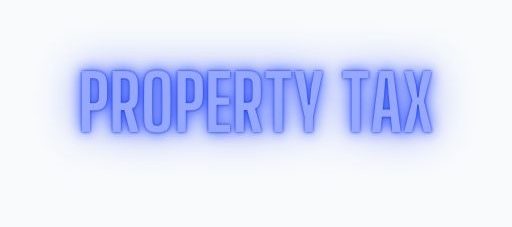Understanding the Equal Credit Opportunity Act (ECOA): Your Guide to Fair Lending Practices
November 28, 2024

What is the Equal Credit Opportunity Act (ECOA)?
The Equal Credit Opportunity Act (ECOA) is a federal law designed to prevent lenders from discriminating against applicants based on certain characteristics. The primary purpose of ECOA is to ensure that credit decisions are made based on an individual’s creditworthiness rather than their personal attributes. Under ECOA, it is illegal for creditors to discriminate against applicants based on race, color, religion, national origin, sex, marital status, age, receipt of public assistance, or the exercise of rights under the Consumer Credit Protection Act.
- How to Use the Fractal Indicator for Accurate Market Reversal Predictions in Trading
- Unveiling the Dutch Tulip Bulb Market Bubble: The World’s First Recorded Financial Frenzy
- Understanding the Employment-to-Population Ratio: A Key Metric for Labor Market Health and Economic Analysis
- How to Use the EV/2P Ratio: A Comprehensive Guide to Valuing Oil and Gas Companies
- How to Calculate Compound Annual Growth Rate (CAGR): A Comprehensive Guide for Investors and Businesses
Protected Classes Under ECOA
ECOA protects several classes of individuals from discriminatory practices in lending. Here are the specific groups covered:
Bạn đang xem: Understanding the Equal Credit Opportunity Act (ECOA): Your Guide to Fair Lending Practices
-
Race: Creditors cannot discriminate based on an individual’s racial background.
-
Color: Discrimination based on skin color is also prohibited.
-
Religion: An applicant’s religious beliefs cannot influence a credit decision.
-
National Origin: Creditors must treat all applicants equally regardless of their country of origin.
-
Sex: Gender-based discrimination is strictly forbidden.
-
Marital Status: Whether an individual is single, married, divorced, or widowed should not affect their credit application.
-
Age: As long as an applicant has the capacity to enter into a binding contract, age cannot be a factor in lending decisions.
-
Public Assistance: Receiving public assistance does not disqualify someone from obtaining credit.
-
Exercise of Consumer Protection Rights: Individuals who exercise their rights under consumer protection laws are also protected.
Examples of prohibited discriminatory practices include denying credit based on these protected classes or using different standards for evaluating creditworthiness.
Scope and Applicability of ECOA
ECOA has a broad scope and applies to various types of credit transactions and entities. Here’s what’s covered:
Types of Credit
-
Personal Loans
-
Credit Cards
-
Home Loans
-
Student Loans
-
Car Loans
-
Small Business Loans
-
Loan Modifications
Entities Subject to ECOA
-
Banks
-
Savings Associations
-
Credit Unions
-
Retailers
-
Bankcard Companies
-
Finance Companies
-
Other creditors who extend credit to consumers.
Prohibitions Under ECOA
ECOA explicitly prohibits several discriminatory practices in any aspect of a credit transaction. Here are some key prohibitions:
-
Creditors cannot discriminate in any part of the credit process, including application processing, credit evaluation, and loan terms.
-
They are prohibited from asking about an applicant’s marital status or plans for children unless it is directly related to the applicant’s ability to repay the loan.
-
Creditors cannot disallow certain income sources such as alimony or child support without considering them in the credit decision.
Requirements for Creditors Under ECOA
Creditors have specific obligations under ECOA to ensure fair lending practices:
Notification Requirements
Creditors must notify applicants of the action taken on their application within 30 calendar days. If the application is denied or other adverse action is taken, the creditor must provide reasons for this decision.
Prohibition on Discouraging Applications
Creditors are not allowed to discourage applications based on protected classes. This means they cannot make statements that would deter someone from applying for credit because of their race, sex, or other protected characteristics.
Special Rules for Business Credit Applications and Marital Status Considerations
For business credit applications, creditors must consider the business’s creditworthiness rather than the owner’s personal attributes. Additionally, when evaluating marital status, creditors must consider both spouses’ income and credit history if they choose to do so.
Enforcement and Penalties
Several agencies are responsible for enforcing ECOA:
Agencies Responsible for Enforcement
-
Consumer Financial Protection Bureau (CFPB)
-
Department of Justice (DOJ)
-
FDIC
-
Office of the Comptroller of the Currency
Violations of ECOA can result in significant penalties:
-
Civil liability
-
Punitive damages
-
Attorney’s fees
Special Purpose Credit Programs
ECOA allows for special purpose credit programs designed to benefit economically disadvantaged persons. These programs must meet specific requirements:
-
They must be written plans.
-
They must specify the beneficiary criteria clearly.
These programs aim to provide access to credit for individuals who might otherwise be excluded due to historical or systemic barriers.
Case Studies and Historical Context
The enactment of ECOA was driven by significant pressure from women’s and civil rights groups who fought against pervasive lending discrimination. Here are some notable examples:
Historical Context
In the early 1970s, women were often denied credit unless they had a male co-signer, and minority groups faced outright denial of loans based on their race. The passage of ECOA marked a crucial step towards ending these discriminatory practices.
Notable Cases
There have been numerous cases where ECOA was applied to prevent discrimination. For instance, banks have been fined for charging higher interest rates to minority borrowers compared to white borrowers with similar credit profiles.
Nguồn: https://propertytax.pics
Danh mục: Blog
